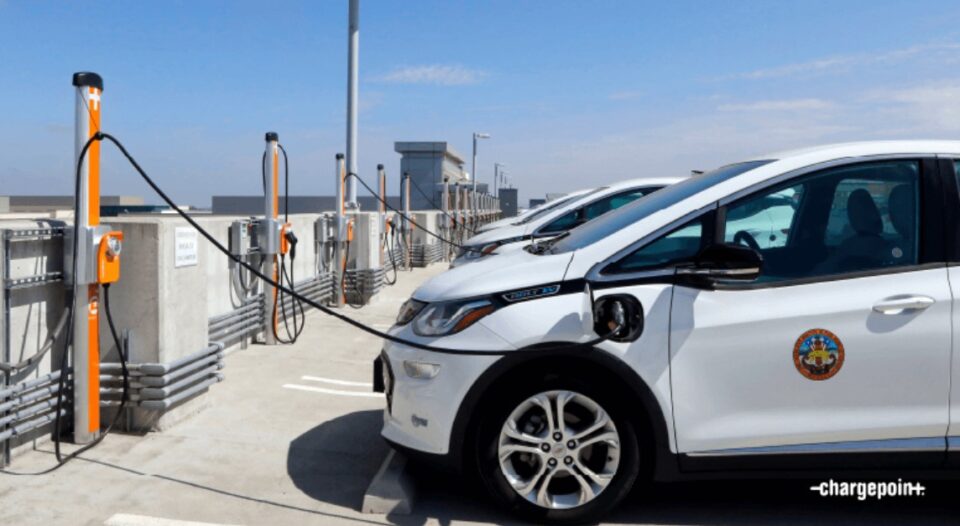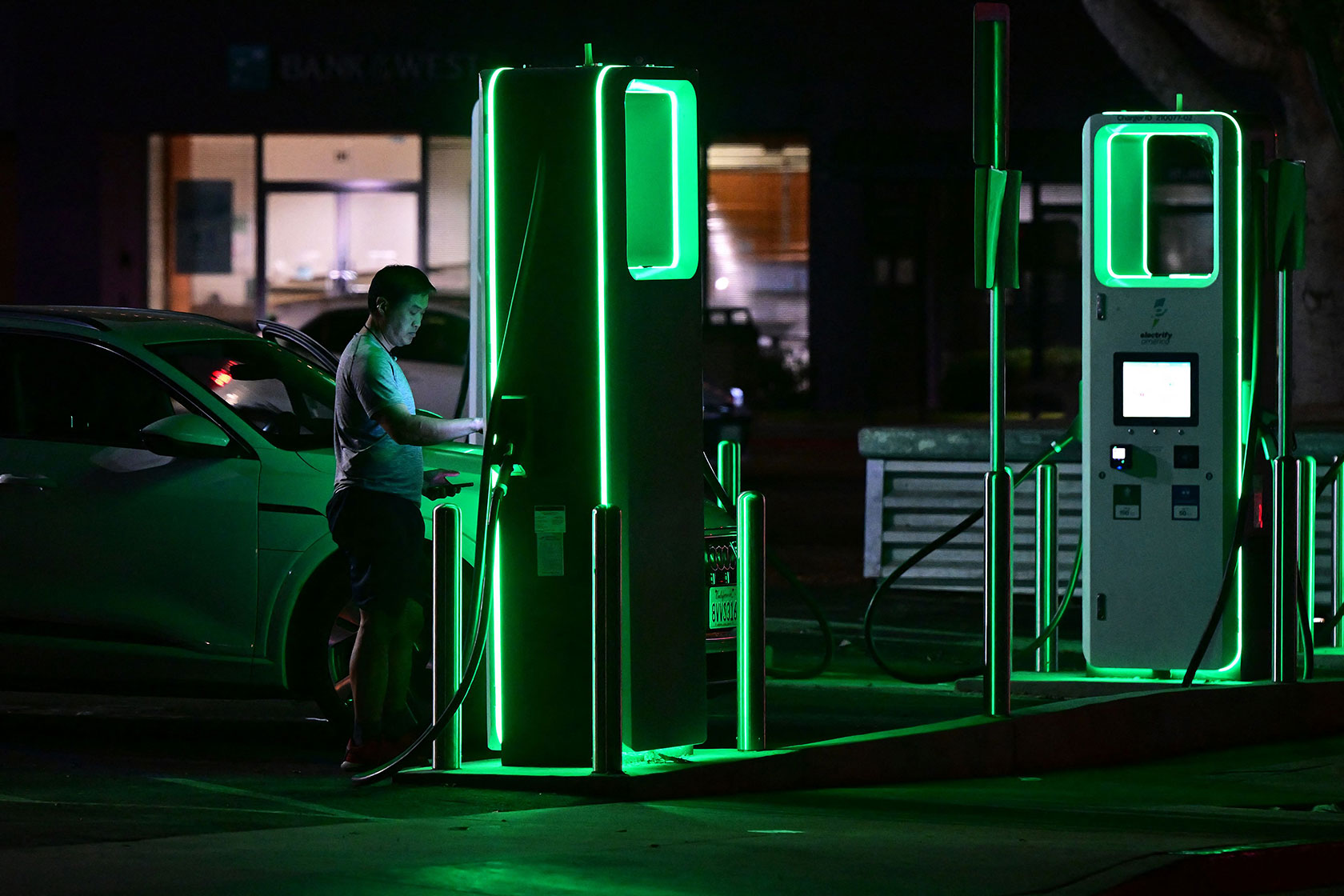Expert Opinions and Market Insights When You Buy EV Charging news
Expert Opinions and Market Insights When You Buy EV Charging news
Blog Article
Leading EV Charging Information: Key Updates on Facilities and Development

Recent Advancements in Fast-Charging Modern Technology

Moreover, developments in battery technology, including improved thermal monitoring systems and greater power thickness batteries, complement fast-charging capacities. These growths alleviate the danger of battery degradation throughout rapid charging, ensuring durability and performance for EV owners.
Furthermore, the integration of smart billing solutions is boosting customer experience, allowing real-time surveillance and dynamic prices versions. EV Charging news. This flexibility permits motorists to maximize charging costs and times based upon grid need
As automakers remain to purchase fast-charging networks, the collaboration between sector stakeholders is crucial. Partnerships in between billing station companies and auto makers are paving the means for extensive coverage, ultimately fostering a more durable EV community. These improvements are essential in supporting the shift to sustainable transport.
Government Initiatives for Billing Expansion
Government efforts play a critical function in the development of electric vehicle (EV) billing facilities, assisting in the shift to lasting transportation. Various federal and state programs are being implemented to enhance billing ease of access, decrease the financial burden on consumers, and advertise the adoption of electrical cars.
Notably, the united state government has actually designated substantial financing with the Facilities Financial Investment and Jobs Act, which allocates $7.5 billion for EV charging network development throughout the nation. This funding is targeted at deploying thousands of brand-new charging stations, especially in underserved areas, thus addressing array anxiety among prospective EV buyers.
Additionally, countless states are establishing regulations to enhance the allowing process for charging station installments, which is important for accelerating deployment. Rewards such as tax obligation credits and discounts for both customers and services are also being presented to motivate the setup of charging infrastructure.
Moreover, public-private partnerships are increasingly becoming an emphasis, leveraging private investment to enhance government funding. These initiatives highlight a collective method important for developing a thorough and efficient EV charging network, inevitably adding to a greener and even more lasting future.
Innovative Battery Solutions Enhancing Effectiveness
Transforming the landscape of electric lorry (EV) modern technology, ingenious battery services are dramatically improving efficiency and performance. Developments in battery chemistry, specifically with lithium-sulfur and solid-state batteries, are causing boosted power density, which permits longer ranges and faster billing times. These new battery kinds have the prospective to surpass typical lithium-ion batteries by using higher capacities while reducing weight, therefore enhancing total car effectiveness.
Moreover, growths in battery administration systems (BMS) are optimizing energy use and prolonging battery life expectancy. Smart formulas keep an eye on battery wellness and performance, making it possible for real-time modifications to billing and releasing processes. This not only boosts the efficiency of the battery yet likewise guarantees a more trusted and sustainable energy resource for EVs.
Furthermore, the combination of why not look here recycling technologies is dealing with the ecological effect of battery manufacturing and disposal. Developments in second-life applications for EV batteries are promoting their usage in power storage space systems, contributing to a round economic situation.
As these innovative battery solutions remain to advance, they promise to change the EV market, making electric vehicles extra attractive and easily accessible to a more comprehensive audience while sustaining international sustainability objectives.

Cooperation Between Automakers and Billing Networks
Identifying the critical demand for a robust billing facilities, car manufacturers are progressively collaborating with billing network providers to improve the EV ownership experience (EV Charging news). These partnerships aim to produce a smooth charging ecosystem that benefits consumers and sustains the shift to electrical cars
Significant automotive brands are signing up with pressures with established billing networks to expand their billing station insurance coverage, guaranteeing chauffeurs have access to hassle-free and trustworthy billing options. Partnerships with networks like ChargePoint and Electrify America permit car manufacturers to incorporate billing services straight right into their automobiles' navigation systems, leading customers to the local stations and supplying real-time availability updates.
In addition, these cooperations often result in the development of fast-charging modern technologies that substantially decrease the time required to charge an EV. By pooling resources and knowledge, car manufacturers and billing networks can introduce much faster, creating solutions that meet the growing need for electrical wheelchair.
Furthermore, joint initiatives may additionally bring about more standardized charging protocols, which can minimize customer confusion and advertise more comprehensive EV adoption. On the whole, these tactical alliances are essential in developing a straightforward and efficient billing infrastructure that satisfies the needs of a broadening electric automobile market.
Difficulties Encountering EV Billing Infrastructure
As the electrical vehicle market proceeds to expand, numerous challenges are emerging that prevent the development of a detailed charging facilities. Among the main challenges is the inadequate variety of billing terminals, particularly in country and underserved city areas. This space develops variety anxiety amongst potential EV buyers, preventing them from making the switch.
Furthermore, the lack of standardization accountable website here innovation complicates the infrastructure landscape. Variations in plug types and charging speeds can produce complication for users and boost operational complexities for billing network operators. Moreover, the assimilation of billing terminals into existing electrical grids postures considerable difficulties. Lots of areas face capacity constraints, requiring significant investments in grid upgrades to fit raised demand.
An additional pressing issue is the high price connected with the installation and upkeep of charging terminals, which can be an obstacle for both public entities and private services. Governing difficulties and zoning limitations can delay the implementation of billing infrastructure, impeding progression in broadening necessary services. Dealing with these obstacles will certainly be vital for fostering a robust EV ecosystem that supports the transition to sustainable transport.
Final Thought
To conclude, the ongoing developments in EV billing innovation, sustained by significant government campaigns and innovative battery services, are critical for the development and efficiency of electric automobile facilities. Collaborations in between automakers and charging suppliers even more boost terminal insurance coverage, dealing with the expanding demand for obtainable billing alternatives. Regardless of challenges that continue within the EV billing landscape, these developments signify a positive trajectory towards an extra reliable and sustainable electric car environment.
Advancements in billing facilities have led to the growth of ultra-fast chargers qualified of supplying up to 350 kW of power, dramatically reducing charging times. Variations in plug types and billing speeds can develop complication for customers and raise functional intricacies for billing network operators.In verdict, the continuous improvements in EV charging modern technology, sustained by considerable government initiatives and innovative battery solutions, are vital for the development and effectiveness of electric car infrastructure. Partnerships Go Here in between automakers and billing carriers even more boost station protection, attending to the growing need for obtainable charging options. Despite difficulties that persist within the EV charging landscape, these developments indicate a favorable trajectory towards a much more reliable and sustainable electrical car environment.
Report this page